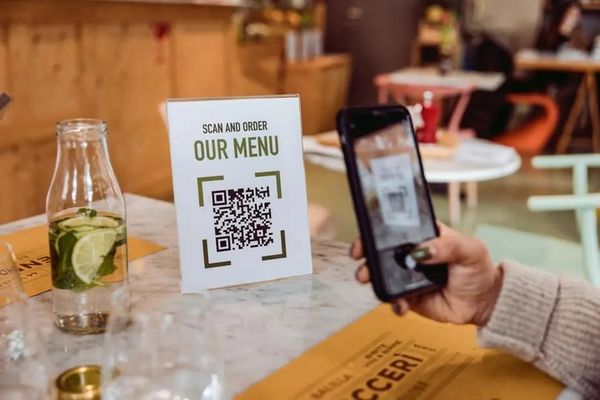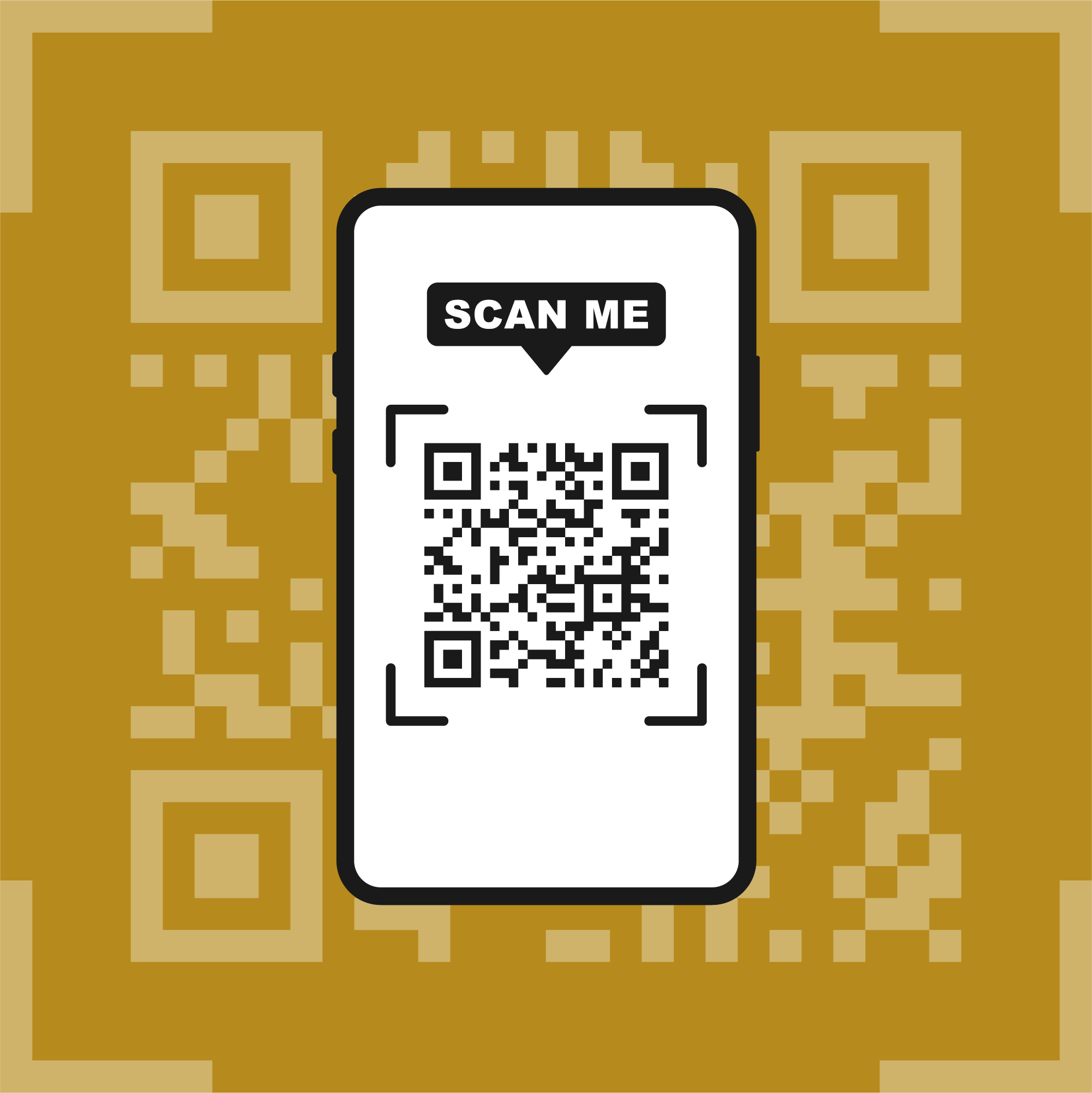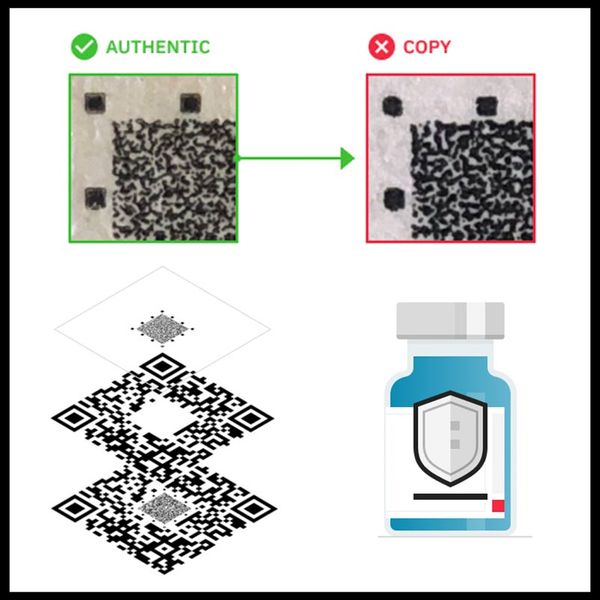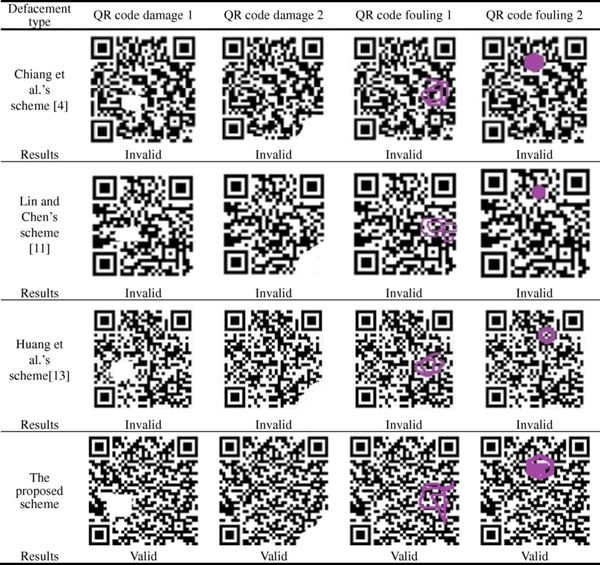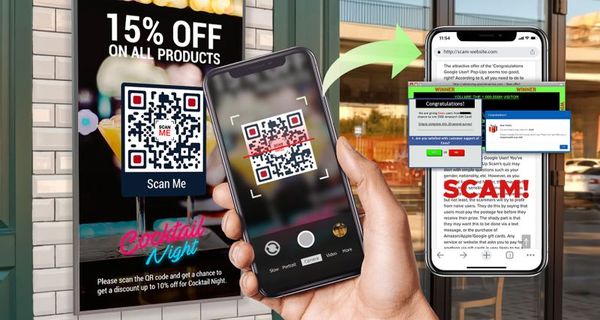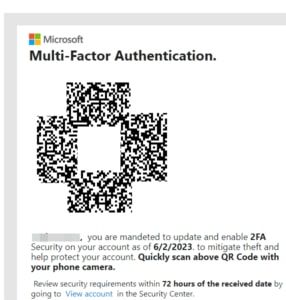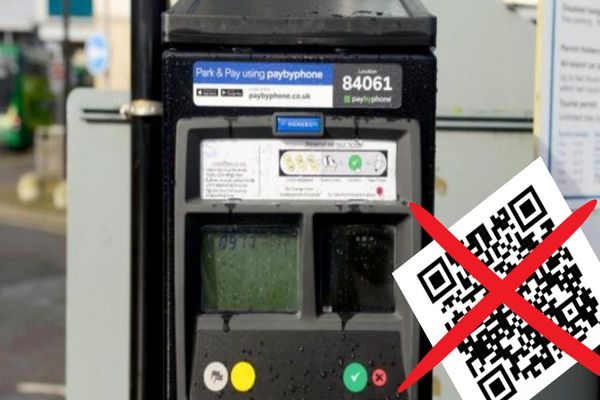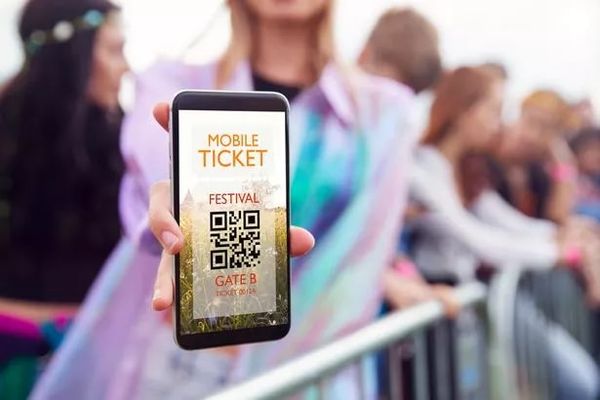Fake QR Code Scams: How to Recognize and Evading Them?
In today's digital age where technology plays a significant role in our everyday lives, we constantly find ourselves interacting with new forms of tech – one of which is QR codes. These simple yet versatile tools have become ubiquitous, used in everything from advertising to contactless ordering in restaurants (as seen in the image below)
However, they've also become a vector for fraud, with scammers manipulating the convenience of these codes for nefarious purposes. Let’s explore the mechanisms of these scams and the potential risks associated with them.
Mechanism of Fake QR Code Scams
Whilst QR codes are generally safe to use, malicious individuals find ways to use them for scams. Here is how they typically operate:
Replacing Legitimate QR Codes with Forgeries
This method involves the physical replacement of authentic QR codes with fraudulent ones. Imagine you're at your local coffee shop that uses a QR code system for menu access and order placing. However, a scammer has switched out the original QR code with a counterfeit.
When you scan the code to place your order, instead of accessing the menu, you’re redirected to a bogus site run by the scammer. Common places where this method is used include coffee shops, parking spaces, shopping malls, or any place where QR codes can be easily switched out.
Enticing Users to Scan Phony QR Codes
Another tactic scammers use is sending victims QR codes through email, text message, or social media. The sent QR codes often promise enticing offers or rewards, thus luring potential victims into scanning these codes, as demonstrated in the image below.
Damages and Risks
Falling for a fake QR code can lead to severe consequences as the scam has the potential to inflict substantial damage, often involving:
- Personal Information Theft: When a phony QR code is scanned, victims are usually redirected to a fake website that imitates a legitimate business. Here, they are then prompted to enter personal information. Once this sensitive data is given, scammers can steal and misuse it.
- Financial Loss or Theft: These scams often lead to victims losing money directly. This could be through a payment taken on the phony site from the code, unauthorized transactions made with stolen card information, or indirectly through identity theft.
Navigating the digital world involves acknowledging these potential risks and arming ourselves against them. The first step to this is understanding the mechanisms of such scams and being vigilant. In the next section of this blog, we’ll cover tips on how to protect yourself from such scams. Stay tuned!
Recognizing QR Code Scams
Understanding the dangers of QR code scams is a start, but it's crucial to be able to detect these scams when you encounter them. Arm yourself with this knowledge to avoid being an easy target.
Signs of a Counterfeit QR Code
Here are some tell-tale signs to help you identify a possibly counterfeit QR code:
Appearance Anomalies
Genuine QR codes are usually visibly well-produced, with clear, concise symbols, and are easy to scan. In contrast, fake QR codes often appear distorted, blurred, or hastily put together. They may have wrinkles, be poorly printed, or look different from the standard black and white squares you're used to seeing.
Unusual/ Unexpected QR Codes
Carl Sagan once said, "Extraordinary claims require extraordinary evidence". The same principle applies here. If you find a QR code in an unexpected place or if scanning it promises unusually high rewards, it’s always wise to be cautious before proceeding.
Suspicious Landing Pages After Scanning
Upon scanning a valid QR code, you should be directed to a professional, secure website that correlates with the advertised service or product. If you find yourself on a suspicious site, poorly designed or unrelated to the advertised content, you may have scanned a counterfeit code.
Suspicious Requests Post-Scanning
Even if a QR code passes your initial scrutiny, stay vigilant for these potential red flags after you scan it:
Unexpected Download Prompts
After scanning a QR code, you should not be prompted to download an application or file. Genuine businesses usually do not carry out their operations this way. If a scan leads to a download request, it's best to abort the operation.
Requests for Personal Information
Unless you're in a secure, trusted platform where providing your personal information is expected (like online banking or shopping), you should rarely have to give it out. If you're asked for your personal details after scanning a QR code, be wary.
Requests for Financial Transactions
Just as you should be cautious of invitations to provide your personal information, also be careful if a QR code scan leads to an unexpected request for a financial transaction. Legitimate QR code scans rarely, if ever, lead directly to payment requests.
In conclusion, while QR codes are a convenient technology, without the right precautions, they can be a gateway to scams. By being mindful of these red flags, you can protect yourself against scammers and use QR codes safely. Keep following this blog for more tips and insights on ensuring a safe digital experience.
Evading QR Code Scams: Safety Measures and Best Practices
Considering the potential risk associated with QR code scams, it becomes paramount to take necessary precautions. Here are some safety measures and best practices to dodge QR code scams effectively:
Best Practices while Handling QR Codes
Don’t Scan Unsolicited QR Codes
If you receive a QR code through an unexpected email message, a flyer, or from a questionable online source, it's best not to scan it. As a general rule, only scan QR codes from trusted sources and for expected purposes.
Check the Source of QR Codes
Before scanning a QR code, ensure it's coming from a reliable source. For instance, if you're scanning a code from a poster, ensure the poster looks professional and is situated in a legitimate place. If it's from an email source, ensure the sender is one you trust. When in doubt, it's best to avoid scanning altogether.
Using QR Scanner with Built-In Security Function
To up your defense against QR scams, consider using a QR code scanner that comes with built-in security functions. These scanners automatically alert you if a scanned QR code is attempting to navigate to a suspicious or malicious website.
Stay Updated with the Latest Technology for Security
The technological landscape changes rapidly. To stay safe, it’s essential to remain updated on the latest security trends and technologies. Subscribing to reliable cybersecurity publications or following trusted cybersecurity experts on social media can be a great way to stay informed.
Reporting Suspicious QR Codes
If you encounter a suspicious QR code, it's crucial to report it. This helps prevent others from potentially falling victim to the same scam. In the UK, you can quickly report any suspicious QR codes to the National Fraud & Cyber Crime Reporting Centre.
By adopting these safety measures and following these best practices, you can take a huge step towards protecting yourself from QR code scams and making the most out of this convenient technology safely. Don't let scams prevent you from embracing digital advancements, stay safe, and stay ahead.
Case Studies: Fake QR Code Scams
To further understand how these scams operate, let's consider some actual instances of QR code scams that have occurred.
Explanation of Real-World Instances of QR Code Scams
Case Study 1: Parking Payment Scam
A well-documented instance of a QR code scam occurred in the Isle of Wight, UK. A parking payment system using QR codes had been spoofed by scammers. They replaced the legitimate QR codes on parking meters with their own fraudulent codes.
When unsuspecting parkers scanned the code to pay for their parking, they were directed to a bogus payment page where they unknowingly parted with their credit card details. The fraudsters then used these details to siphon money from the victims' accounts.
Case Study 2: Fake Ticket Scams
Another recent example is fake ticket scams that have been reported on various events such as concerts and festivals. Scammers created realistic-looking but fake tickets with QR codes which actually linked to phishing websites.
Unsuspecting victims, attracted by significantly discounted prices, bought these tickets and scanned the QR codes, only to end up sharing sensitive information on sites controlled by the fraudsters.
As we continue to advance in this tech-driven era, QR codes remain a convenient resource for businesses and individuals alike. However, this convenience can sometimes make us an easy target for tech-savvy fraudsters looking to exploit unsuspecting victims.
By staying vigilant and following safe practices as we've outlined in this article, you can protect yourself against such scams. Remember, when dealing with any technology – including QR codes – it's crucial to ensure you're interacting in a safe and secure manner.
Stay informed, stay alert, and enjoy the convenience of QR codes while keeping potential risks at bay. Develop safe habits, such as checking the source of QR codes, using secure scanning apps, and keeping up-to-date with the latest in cyber-security.
In the digital world, your safety is in your hands!
Frequently Asked Questions (FAQ)
The information provided in this blog might prompt you to ask some additional questions. Here are the answers to some commonly asked ones:
Can every QR code be potentially dangerous?
No, not all QR codes are dangerous. Many businesses rely on QR codes to simplify tasks like directing you to their website or pre-populate information for ease of use. However, it's essential to be cautious about where you’re scanning the QR code from and whether it's from a trusted source.
Should I stop using QR codes because of potential scams?
While QR scams do exist, it does not mean that you should stop using QR codes altogether. QR codes are an integral part of today's digital age and provide a large amount of convenience. Instead of avoiding them, remain vigilant and use the safety measures and best practices that we have outlined in this article.
Does it make a difference if I use a third-party scanning app?
It certainly can! Some third-party apps provide additional security measures such as warning you about suspicious activity or malicious content. It’s generally recommended using an app with built-in security features, or if possible, using the camera's in-built scanner on your smartphone.
I think I scanned a malicious QR code. What should I do?
If you believe you may have fallen victim to a QR code scam, it's imperative to act immediately. Contact your bank and credit card providers, change your passwords, monitor your accounts for suspicious activity, and report the incident to local law enforcement and your country's cybercrime center.
Where can I report suspicious QR codes?
You can report suspicious QR codes to your local law enforcement agency or your country's cybercrime reporting center. For instance, if you're in the UK, you can report it to the Action Fraud, the National Fraud & Cyber Crime Reporting Centre.
Always remember, your first line of defense against scams and hacking attempts is staying informed and vigilant!


